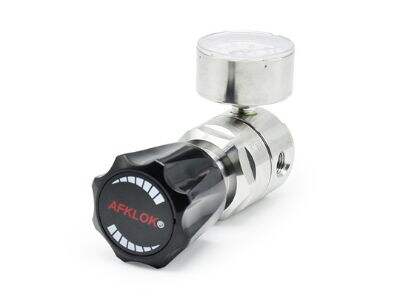The Impact of Chemicals on Gas Manifold Systems
Materials are very crucial when it comes to how long gas manifold systems survive. If the materials in a gas manifold are not compatible, they can degrade or wear out more quickly. This also can lead to expensive repairs. Now let’s take to learn in this section how compatible materials extend the life of gas manifolds.
Material Compatibility by Gas Manifolds
The materials in a gas manifold need to function in harmony to keep the system operating. If they do not, they can cause a bad reaction and a rawing over time. This has the potential to create leaks, clogs, or other problems which can reduce the life of the gas manifold. Matching materials make gas manifold systems last longer and perform better.
How Gas Manifolds Work: Materials at Play
There are a variety of materials in gas manifold systems that need to cooperate to deliver gas where it needs to go. These materials need to be able to not break when they reach this pressure and temperature. If they don't material match perfectly, they can corrode or crack, or bend. Such could lead to leakage and failure of the gas manifold. Gas manifolds can now last longer and work more efficiently using materials that play well together.
Selecting the Appropriate Materials to Last decades
When choosing gas manifold materials, you need to consider what they will do to each other. Some materials are strong when they stand alone but not when they’re mixed with other materials. Gas manifold system, by the selection of suitable materials, gas manifolds can be made to last longer and require fewer repairs. This can save time and money, and get the gas manifold system running safely and well.
The Role of Material Compatibility in Performance and Longevity
2) The compatibility of materials in a gas manifold can significantly impact the operation and life of the gas system. Materials can wear over time when not of the same type. This can lead to leaks and other issues that impact the efficiency of the gas man As gas manifolds operate seamlessly it maximizes service life keeping repairs to a minimum.
Achieving Maximum Lifespan with the Correct Material Selections
The material selection GAS DELIVERY SYSTEMS should use materials which are to be fitted together in order to last as long as possible for a gas manifold system. This can help prevent leaks and malfunctions that might shorten the system’s life. Picking materials that play nice together can ensure that gas manifold systems last longer and run better, MEKC president Dave Simpson said. This can help reduce time and expense on repairs and ensure the gas manifold system operates safely.”
In summary, material compatibility of a gas manifold system is critical for an extended life. By choosing materials that complement each other, gas manifolds can have long lifespans and superior performance, resulting in lower repair costs and safe operation. With proper selection of materials, gas manifold systems for gas delivery can provide the gas for years to come.
Table of Contents
- The Impact of Chemicals on Gas Manifold Systems
- Material Compatibility by Gas Manifolds
- How Gas Manifolds Work: Materials at Play
- Selecting the Appropriate Materials to Last decades
- The Role of Material Compatibility in Performance and Longevity
- Achieving Maximum Lifespan with the Correct Material Selections
 EN
EN
 AR
AR
 HR
HR
 CS
CS
 NL
NL
 FR
FR
 DE
DE
 IT
IT
 JA
JA
 KO
KO
 NO
NO
 PL
PL
 PT
PT
 RO
RO
 RU
RU
 ES
ES
 SV
SV
 TL
TL
 ID
ID
 VI
VI
 MT
MT
 TH
TH
 TR
TR
 AF
AF
 MS
MS
 AZ
AZ

